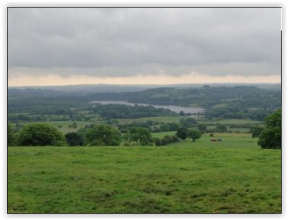Case study:Tittesworth Catchment Project: Difference between revisions
No edit summary |
No edit summary |
||
| Line 1: | Line 1: | ||
{{Case study status | {{Case study status | ||
|Approval status= | |Approval status=Approved | ||
}} | }} | ||
{{Location | {{Location | ||
Latest revision as of 11:01, 4 January 2019
Project overview
| Status | In progress |
|---|---|
| Project web site | http://www.ontrent.org.uk/site/tittesworth |
| Themes | Land use management - agriculture, Water quality |
| Country | England |
| Main contact forename | Adrian |
| Main contact surname | Rochford |
| Main contact user ID | User:JoshRRC |
| Contact organisation | Trent Rivers Trust |
| Contact organisation web site | |
| Partner organisations | |
| Parent multi-site project | |
| This is a parent project encompassing the following projects |
No |
Project summary
The Trent Rivers Trust employs a dedicated project officer, Adrian Rochford, in the Tittesworth Reservoir catchment who is funded by Severn Trent Water. The role of the project officer is to work with farmers in the catchment to promote best farming practice to reduce the risk of diffuse pollution of nutrients such as nitrates and phosphates and crop protection chemical residues that could enter the water in the reservoir.
Adrian has been working in the catchment since 2011 and has developed excellent working relationships with almost every farmer in the area. By explaining to individuals how they can make a difference to water quality by changing their agricultural practices, Adrian’s advice has led to a fifty per cent reduction in levels of harmful chemicals in the water.
Adrian can also present an evidence based argument demonstrating to the farmer that by implementing the changes that he is recommending, they will also save money. Adrian has helped farmers to reduce their fertiliser costs by undertaking a soil analysis which has shown that phosphate and potash levels are adequate so a cheaper ‘straight’ nitrogen fertiliser can be used in place of a more expensive compound product.
Training events for farmers have been organised to provide guidance on the use of chemicals to ensure that farmers are using the most effective chemical at the correct application rates and are adopting best practice at all times. Adrian can also show the farmers that grazing and silage production will not be compromised when embracing these measures. The Tittesworth project has also funded the purchase of a ‘Weed Swiper’ which facilitates large scale, low cost ‘spot spraying’ of glyphosate of docks and thistles on grazed pasture, using significant less chemical than would be required when using a boom spray. Farmers who have used the weed swiper have observed excellent levels of weed kill and reduced chemical cost. The project works closely with the Peak and Dales Catchment Sensitive Farming Initiative to avoid duplication of effort and so that the messages given to farmers are consistent and clear. Severn Trent Water has also funded a number of high priority capital projects on farm to tackle potential diffuse and point source pollution risks such as field drainage issues and yard infrastructure improvements.
Visit the website - https://www.trentriverstrust.org/project/tittesworth-catchment-officer/
Monitoring surveys and results
Lessons learnt
Image gallery
|
Catchment and subcatchment
Site
Project background
Cost for project phases
Reasons for river restoration
Measures
MonitoringHydromorphological quality elements
Biological quality elements
Physico-chemical quality elements
Any other monitoring, e.g. social, economic
Monitoring documents
Additional documents and videos
Additional links and references
Supplementary InformationEdit Supplementary Information
| ||||||||||||||||||||||||||||||||||||||||||||||||||||||||||||||||||||||||||||||||||||||||||||||||||||||||||||||||||||||||||||||||||||||||||||||||||||||||||||||||||||||||

